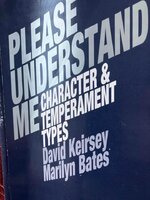Do you actively employ established Active Listening Skills with your patients?
“Thought Empathy, Emotive Empathy, Validation, Feedback and Reflection?
“Hello there is thought empathy and as well emotive empathy. It never ceases to amaze me of how many high degree individuals don’t use basic and simple rudimentary Active Listening Skills.
1. Thought empathy: I had a friend tell of her personal travails. I immediately put myself in her place and I said that must be stressful.
2. Emotive empathy: I had a wife pass away in October, 2010. It took me four years to finally heal from this deeply felt grief.
I called a Pizza delivery man, and he relayed that he had not gotten over the death of his father. When my wife died. I had too write a professional ‘Grief Note: On How To Communicate With Somebody Dealing With Grief.’
When my wife passed I hated sympathy givers. I know they were just trying to do the best they could under those conditions. I abhored statements like, “Oh, I’m so sorry.” “I’ll pray for you.”
and worst of all someone told me, “I was lucky to have known my wife for as long as I did.” This only reinforces the pain and made her death that more apparent.
Then there were the Advise Givers. “Oh, you need to move on with your life.” This is rhetorical. Don’t the advise givers know that if the issue is important to someone, that they have gone over it a thousand times over? I’d the advise is not specifically asked for, don’t give it.
People generally want to feel validated, and understood. They want their inner feelings and thoughts validated in some way. This is what I did for this gentleman over the phone. I didn’t say, “Oh, I’m so sorry. Or that’s too bad.”
No, I used Emotive Empathy and described my own personal experiences with my wife. I had gotten over my grief. I understood that he had not yet time to heal. He sounded on the phone that his experience and too his feelings were validated by me.
3. We both left the conversation the better for it. When we use Active Listening Skills we ‘Communicate’ With’ the individual. We don’t ‘Talk At Them.’
4. Also there is a difference between actually attentively ‘Listening’ to the individual as a person. To help them feel safe, peace, trust, and actually listened too as well as understood.
I have met too many supposed mental health professionals that treat their patients as patients, and only ‘Hear’ their own message they are wishing to convey.
They seemingly tune out and filter out the patients feedback, IQ level, education, and personal experiences. Especially in the mental health field, but in any field of education, simple Active Listening Skills should be learned, understood and used.
5. Other important skills are ‘Validation.’
6. Feedback
7. Reflection
These are simple, really rudimentary and basic skills to have as a professional who has “Compassion, Humanity, or the even rarer gift of true Empathy.”
"I try to learn from someone more enlightened than myself. But, if I am further on the path, I still can learn from others who may not be so far on the path but still have lessons to impart provided their is mutual dialogue with shown mutual respect.
This is why, with an angry individual I still strive to find some truth in their statement. I will then dialogue with that person. We will communicate on that element of truth or reason.
Thus dialogues, communication, possibly respect and even friendship can be established. Hopefully, the other can learn from me and so I help a fellow sojourner on the path.
One needs be open to discuss anything. Without challenge to one’s belief system there is no growth. If at least one is of the party is open, that person can learn from the experience.
I personally like, love, and am attracted to deep, heavy, mature, intelligent, and insight oriented conversations, discussions, and philosophies." LightSun
"The meeting of two personalities is like the contact of two chemical substances: if there is any reaction, both are transformed." Carl Jung
“Each friend represents a world in us, a world possibly not born until they arrive, and it is only this meeting that a new world is born.” Anais Nin
Do you actively employ established Active Listening Skills with your patients?
“Thought Empathy, Emotive Empathy, Validation, Feedback and Reflection?
“Hello there is thought empathy and as well emotive empathy. It never ceases to amaze me of how many high degree individuals don’t use basic and simple rudimentary Active Listening Skills.
1. Thought empathy: I had a friend tell of her personal travails. I immediately put myself in her place and I said that must be stressful.
2. Emotive empathy: I had a wife pass away in October, 2010. It took me four years to finally heal from this deeply felt grief.
I called a Pizza delivery man, and he relayed that he had not gotten over the death of his father. When my wife died. I had too write a professional ‘Grief Note: On How To Communicate With Somebody Dealing With Grief.’
When my wife passed I hated sympathy givers. I know they were just trying to do the best they could under those conditions. I abhored statements like, “Oh, I’m so sorry.” “I’ll pray for you.”
and worst of all someone told me, “I was lucky to have known my wife for as long as I did.” This only reinforces the pain and made her death that more apparent.
Then there were the Advise Givers. “Oh, you need to move on with your life.” This is rhetorical. Don’t the advise givers know that if the issue is important to someone, that they have gone over it a thousand times over? I’d the advise is not specifically asked for, don’t give it.
People generally want to feel validated, and understood. They want their inner feelings and thoughts validated in some way. This is what I did for this gentleman over the phone. I didn’t say, “Oh, I’m so sorry. Or that’s too bad.”
No, I used Emotive Empathy and described my own personal experiences with my wife. I had gotten over my grief. I understood that he had not yet time to heal. He sounded on the phone that his experience and too his feelings were validated by me.
3. We both left the conversation the better for it. When we use Active Listening Skills we ‘Communicate’ With’ the individual. We don’t ‘Talk At Them.’
4. Also there is a difference between actually attentively ‘Listening’ to the individual as a person. To help them feel safe, peace, trust, and actually listened too as well as understood.
I have met too many supposed mental health professionals that treat their patients as patients, and only ‘Hear’ their own message they are wishing to convey.
They seemingly tune out and filter out the patients feedback, IQ level, education, and personal experiences. Especially in the mental health field, but in any field of education, simple Active Listening Skills should be learned, understood and used.
5. Other important skills are ‘Validation.’
6. Feedback
7. Reflection
These are simple, really rudimentary and basic skills to have as a professional who has “Compassion, Humanity, or the even rarer gift of true Empathy.”
"I try to learn from someone more enlightened than myself. But, if I am further on the path, I still can learn from others who may not be so far on the path but still have lessons to impart provided their is mutual dialogue with shown mutual respect.
This is why, with an angry individual I still strive to find some truth in their statement. I will then dialogue with that person. We will communicate on that element of truth or reason.
Thus dialogues, communication, possibly respect and even friendship can be established. Hopefully, the other can learn from me and so I help a fellow sojourner on the path.
One needs be open to discuss anything. Without challenge to one’s belief system there is no growth. If at least one is of the party is open, that person can learn from the experience.
I personally like, love, and am attracted to deep, heavy, mature, intelligent, and insight oriented conversations, discussions, and philosophies." LightSun
"The meeting of two personalities is like the contact of two chemical substances: if there is any reaction, both are transformed." Carl Jung
“Each friend represents a world in us, a world possibly not born until they arrive, and it is only this meeting that a new world is born.” Anais Nin


